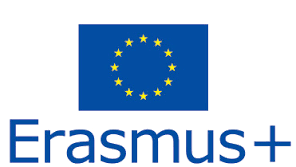Mobility in Vocational Education and Training
Apr 14, 2016
This week the EP voted on favour a resolution on VET mobility worked up by my good friend Ernest Maragall. The outcome is really excellent for several reasons. It gives a boost to the roll VET should play within the Erasmus+ Program framework. The report calls for further commitments of Member States and the Commission both, in qualitative and quantitative terms, so that the Erasmus+ mobility options allow a better and more effective connection between VET and labour integration.
These are some of the more remarkable positive points:
- The creation of a framework in order to establish a permanent and sustainable system that is fully operational, predictable and open for all,
- Increase visibility of VET programs,
- Creation of appropriate schemes to support learning the language of the host country and the key features of the working culture of the destination country,
- Definition by the EU of a statute of the ‘European Apprentice’,
- Simplification of the application process, for both applicants and host companies and institutions,
- Greater transparency and clarity in the implementation of the programmes,
- Better compatibility between different vocational education and training systems and validation and recognition of skills and competences acquired in companies or training centres in different Member States
- VET offer should focus on sectors such as: digital and green economies, circular economies, housing rehabilitation...
- Professional development of teachers and education leaders in VET, in order to help them use the most appropriate hands-on and real-life experience teaching methods, encouraging and supporting the exchange of best practices,
- Existing programmes and initiatives for mobility in VET should be enhanced in terms of accessibility, openness and inclusiveness and guarantee equal access to Erasmus+ mobility actions for disadvantaged groups and those with special needs,
- Ensure that quality standards are introduced for apprenticeships,
- Integration of a social dimension in the design of VET with subjects such as: social entrepreneurship, co-operatives, fair trade...
Unfortunately Ernest’s report had a very painful defeat. Some Erasmus + related documents are only available in some languages. This makes the application process more difficult for applicants, both students and enterprises, if those documents are not available in their language, since their foreign language level might not be good enough and this could discourage them from taking part in the mobility programs. Ernest and several other MEPs tabled an amendment trying to fix that issue. The amendment proposed that Erasmus + documents should be available in all official school languages. That implied that they should be also in Basque o Catalan. The amendment didn’t pass.
The EP showed, once more, the little respect that lots of MEPs have towards language diversity, one of the pretended cornerstones of European heritage.




